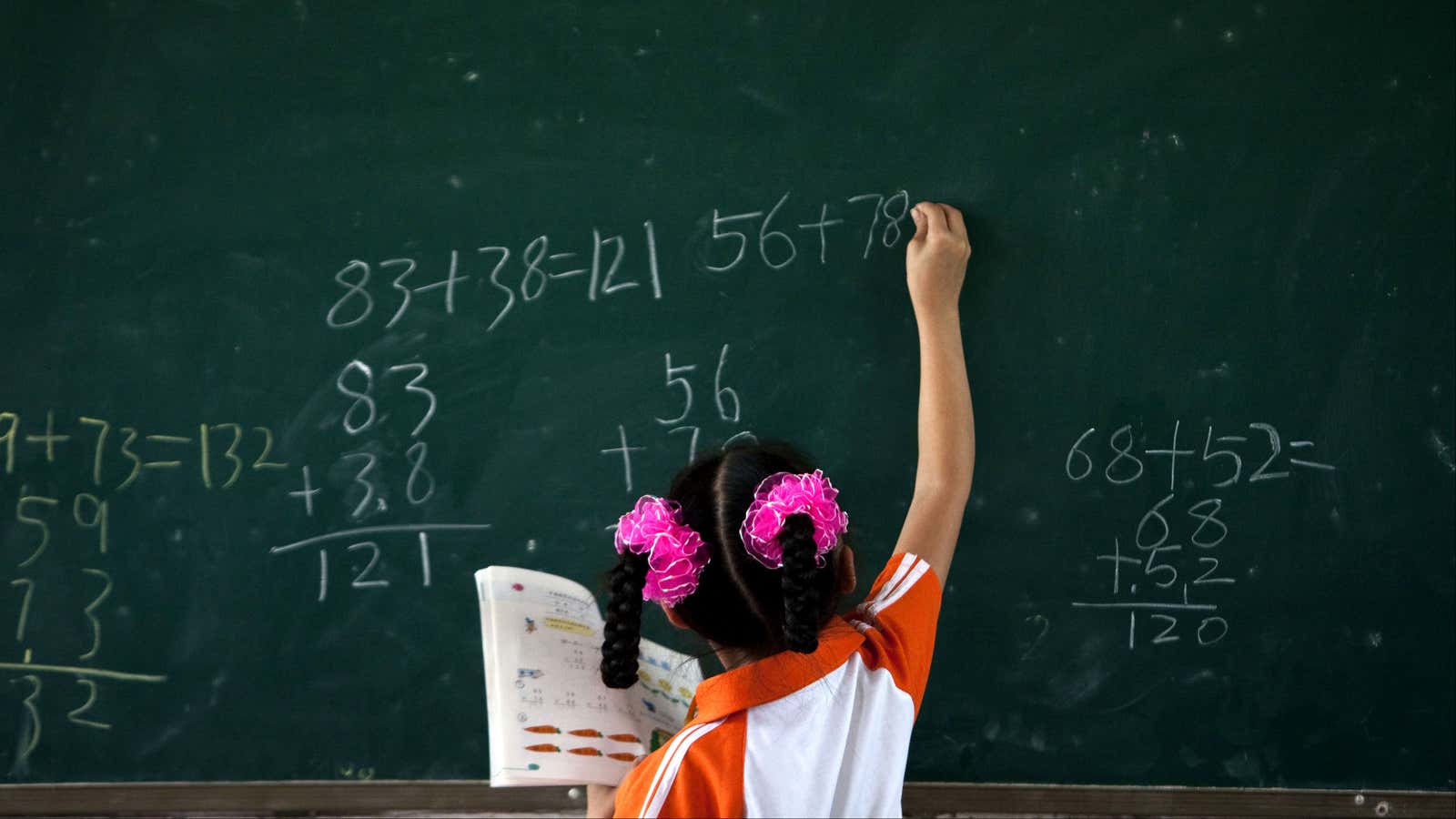The internet is awash in advice on how to make the school year ahead better for students and parents.
One teacher banned homework, to the delight of kids. An anonymous headmaster wrote a missive to parents, reminding them that they play a critical role in shaping their children’s attitudes toward school. (“At school we try to set an example of politeness and consideration. If children tell their classmates to fuck off, they are not learning this from us”).
Tom Sherrington, the head of Highbury Grove School in north London, took a different tack. For the start of the school year, he posted a thoughtful essay directed at teachers. While it’s meant for new teachers facing the daunting task of actually managing a classroom, it’s probably some of the best parenting advice you will find anywhere on how to say no, how to set limits, and when to cede control.
Sherrington writes from experience. When he moved to a new school as a novice teacher in his 20s, he struggled to get his class to listen. He resorted to shouting, and what he called “various teaching atrocities” before discovering the work of Bill Rogers, an Australian teaching guru (whose message came to Sherrington on VHS tapes).
Here’s what I took from Sherrington’s advice for teachers, as it relates to parents:
Use positive language
Kids push boundaries. It’s a critical part of how they grow up. As a result, parenting can sometimes feel like a never-ending exercise in 100 ways to say no. A simple, firm “no” easily escalates into “how many times and ways do I have to say NO?!”
Rogers suggests using “positive language.” (As any parent knows, that’s harder than it sounds.) Instead of saying “stop interrupting your sister,” you say something positive: “I’d like you to listen to what she has to say before speaking.” Instead of “stop complaining about dinner,” you try, “I’d love to see some gratitude about the food that is cooked for you.”
Human beings do not respond well to criticism, and kids are no different. In the workplace, we are very intentional about channeling positive feedback. We don’t start a performance review with a harsh critique, hammering on about a person’s negative qualities or damning personality traits. We start positive, and move, hopefully, toward constructive. We can do this with kids too.
By slightly tweaking how we ask for something, we can make a big difference in what kids hear, and increase the chance that they will respond in a way we like.
And, Sherrington suggests, say “thank you” when they do respond—and whenever you can. (That’s called “modeling.”) “This is so simple but packs a punch,” he writes. “After watching Bill Rogers, I found myself saying ‘thanks’ all the time.. and it makes a difference.”
Give children choices and explain consequences
Long gone are the days when “because I said so” is a reasonable explanation. When parents create clear consequences and follow through on them, children know what is expected of them. This does not ensure good behavior, but it takes away the uncertainty and negotiation around what happens when those boundaries are crossed.
“This works so much better than crude belligerent ‘do what I say’ command language,” writes Sherrington. He highlights the power of offering children clear choices and using the ”when…then” statement, which gives children autonomy, within a reasonable set of expectations. Sherrington offers these examples:
- Jamil, you can either work quietly by yourself or you can come up and sit with me,
- James, you can go next door to work with Mr Anderson or you can work sensibly with Andy as I’ve asked.
- Richard, you can do exactly what I’ve asked or get a C3 detention as you were warned earlier.
- When you have finished tidying up your area… then you can sit wherever you want.
Use the power of partial agreement
Sometimes we can’t help but try to get in the last word. But we shouldn’t. Rogers taught Sherrington about partial agreement, a conflict resolution strategy that allows for the possibility you might be wrong, or that you may be missing aspects of a situation. You block tangential arguments from taking over by using ‘maybe’ and ‘but.’ It looks like this, Sherrington writes:
Student : “I wasn’t talking, I was doing my work”
Teacher : “OK, Maybe you were but now I want you to press on to finish the task.
Student: “It wasn’t me… it’s not mine… I didn’t do anything”
Teacher: “Maybe not – but we’re all clear on the rules about that aren’t we… and I’d like you to help me out next time, Thanks. ”
The goal is not to avoid consequences for bad behavior, but to build trust by ceding some authority while keeping the focus on the goal (getting the work done).
Be the grown-up
Style matters, Sherrington says. He describes an indecisive teacher, “hoping for compliance but not insisting; being timid in the face of a challenge; pleading not directing.” He also describes an autocratic one, wielding power derived from status over students.
Instead, he suggests, be an assertive adult, who “expects compliance but refuses to rely on power or role status to gain respect.” Sounds like a good parenting model to me.
Finally, Sherrington acknowledges, all teachers and parents lose it or make mistakes every once in a while. The key is what you do about it. If you admit that you were wrong and express a desire to improve your behavior in the future, you are modeling to children that we all mess up, and accountability matters.
It’s called “rebuild and repair,” and it’s a great technique to keep in your back pocket for when all these parenting tips fall through.




